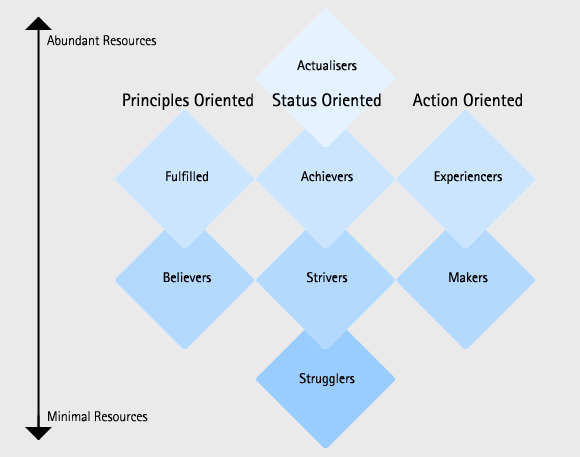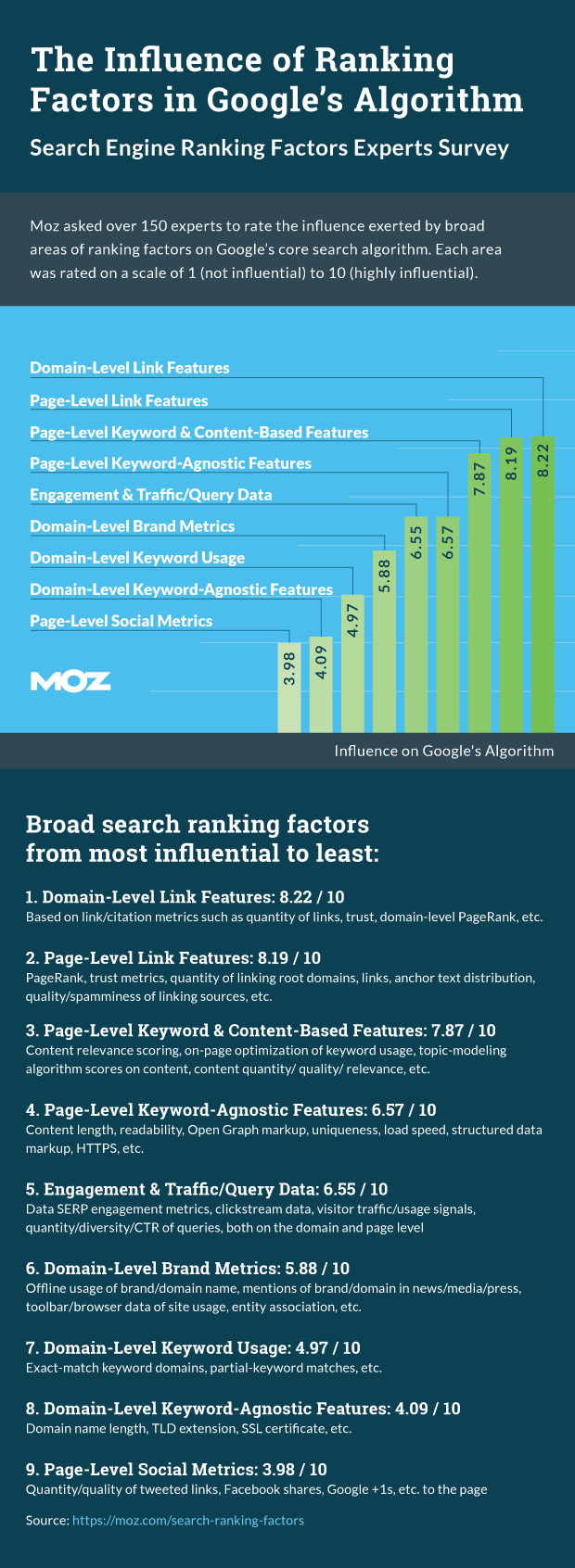Since internet was made available to the consumers, that is reach to common people as become wider. Nowadays, thanks to the growth of mobile technologies, the internet is always present, this two facts changed your perception and needs. For example in the past a mister named Abraham Maslow created a hierarchy pyramid of needs in which you have the fundamental levels of needs at the bottom and the need for self-actualization at the top, nowadays the needs itself have not changed but the internet has changed the way you satisfy your needs. But nothing better to explain the evolution of theory than an info-graphic (not with the new social networks, but it will to understand the concept).

Another picture to give a better picture of how the need of having internet is now relevant:
Ok this to prove a point, that some of the core marketing theories are still useful, they just need a little tweak. Like marketeers are doing now with creating Buyer Persona, which is a mix of old market segmentation techniques adapted to be more efficient in the internet.
Now back to the original topic that is giving you tips for building a Buyer Persona. First let's start with the common definition of Buyer Persona and some basic principles published on The Strategist Blog that a marketeer should have in mind:
Definition: Buyer personas are fictitious representations of your target buyers, incorporating not just demographic data, but psychographic and behavioral insight as well. On average, using these tools makes websites two to five times more effective by allowing businesses to create catered marketing experiences that speak directly to a user’s needs.
Principles to have in consideration when building a Buyer Persona:
- Measurable: Attributes such as buying power and the number of potential customers can be ascertained or measured.
- Substantial: Segments that have sufficient numbers tend to have profit potential. The most attractive segments should be the largest group with similar characteristics to focus target marketing efforts toward. For example, it would not make sense to target a market that was too small to be profitable.
- Accessible: For a market segment to be attractive, a firm must be able to reach or contact that segment. A market that is out of reach or too expensive to reach or distribute to should not be considered.
- Differentiable: Different segments should respond to different offers; if they respond to the same offer, they are not distinct segments.
- Actionable: Effective marketing strategies can be devised to appeal and satisfy the segment or segments chosen.
After learning the principles, a "fighter" as first to learn and domain the basics, to be able to evolve. With that in mind I will post some helpful tables taken from the Bournemouth University, I recommend reading the full text, for a better understanding.
First let's review what types of segmentation there are:
Basically the Geographic segmentation you use to know where your consumer are, and the demographics to known who your consumers are.
| ||||||||||||||||
|
The ACCORN segmentation it segments consumers geographically by post code and put the residential neighborhood in the same category. Personally I don't like much of this method, maybe because in home town Lisbon and usually you can find an wealthy achievers, skilled workers, mature home owing areas in the same ZIP Code.
| ACORN Categories | |
ACORN Categories
| ACORN Groups |
| A Thriving | 1. Wealthy Achievers, Suburban Areas 2. Affluent Greys, Rural Communities 3. Prosperous Pensioners, Retirement Areas |
| B Expanding | 4. Affluent Executives, Family Areas 5. Well-off Workers, Family Areas |
| C Rising | 6. Affluent Urbanities, Town and Grey Areas 7. Prosperous Professionals, Metropolitan Areas 8. Better-off Executives, Inner City Areas |
| D Settling | 9. Comfortable Middle Agers, Mature Home Owning Areas 10. Skilled Workers, Home Owning Areas |
| E Aspiring | 11. New Home Owners, Mature Communities 12. White Collar Workers, Better off Multi-Ethnic Areas |
| F Striving | 13. Older People, Less Prosperous Areas 14. Council Estate Residents, Better off Homes 15. Council Estate Residents, High Unemployment 16. Council Estate Residents, Greatest Hardships 17. People in Multi-Ethnic, low income ages |
Table for psychographic segmentation, for me this is the best way to segment an consumer, you can even do built a story around your consumer, like Don Draper in Mad Men, but most of the time the stories are made on assumptions not real facts.
Psycho-demographic segmentation
Finally the common mistakes in market segmentation as published in a decision analyst article
After learning the ropes, now you can built your buyer persona, to help you avid marketeer in building valuable leads in the huge marketplace that is the internet world I will share with you an infographic by Share Rain and a link to a useful template created by Hubspot.

Link to download the HubSpot free template
Psycho-demographic segmentation
|
|
| |||
|
|
|
| |
 |
Finally the common mistakes in market segmentation as published in a decision analyst article
Common Mistakes In Market Segmentation
Segmentation studies tend to be large and complicated, so it’s easy for errors and mistakes to be made. Some of the most common mistakes:
- Segmenting a segment. For example, someone might want to segment the market for widgets among 18- to 24-year-olds who live in Vermont and buy brand XYZ. As is evident, the client is asking that a tiny sliver of the market be segmented. True, this tiny sliver can be segmented, but rarely are the resulting segments of any value, because they are just too small. General rule: segment the whole market, including all age groups. The market should be broadly defined for a segmentation analysis to be most effective. In other words, don’t preordain the results by sampling restrictions.
- Overlooking the “universals.” Many attitudinal statements in the questionnaire will not show up in the final segments, because they tend to be the same across all segments. Statements that everyone agrees with, or everyone disagrees with (we call them “universals”) cannot explain much in the multivariate analyses. Variables have to move up and down for the multivariate analysis to work. The highest rated variables, and the lowest rated, are likely to fall out of the multivariate analyses. However, you should always look at these universal statements. Any one of them might be the basis for a positioning or a strategy that would appeal to everyone. If you find something unique that appeals to everyone, the heck with segmentation. Go for the whole hog.
- Creating too many segments. There is a practical limit to the size of segments that companies can effectively target. If you create more than four or five market segments, you run the risk that the resulting segments will be too small to target, at least by mass media. This is not always true, but it is a good rule of thumb.
- Targeting all segments. So you have carefully subdivided your target market into five mutually exclusive psychographic segments, and your boss tells you to develop a marketing plan to attack each segment. If all of your marketing is direct mail, and you can identify the addresses that belong to each segment, then you can attack all segments (assuming your product is relevant to all segments). But, if you use broadcast media in marketing your product, it is very difficult to target multiple segments because of media “spillover.” What you say to one segment will be muddled and confused by the different messages targeted to other segments.
- Confusing the results. Segmentation studies are large and complicated, with enormous amounts of data. It is easy to get lost in this treasure trove of answers and come up with confusing and baffling results.
- Overlooking the basics. The dazzle and glitter of the advanced, rocket-science multivariate analyses attract everyone’s attention. No one ever opens up the crosstabs and looks at the answers to the hundreds of questions asked. Often, hidden in plain view in the plain old crosstabs are tremendous findings that could form the basis for new or improved marketing strategies, advertising campaigns, or new products. Rarely does anyone analyze this basic data, however.
- Targeting people instead of dollars. A market segment might represent a large percentage of the population, but a small part of the market. Always look at the dollar potential of market segments, not just the number of people in the segments.
After learning the ropes, now you can built your buyer persona, to help you avid marketeer in building valuable leads in the huge marketplace that is the internet world I will share with you an infographic by Share Rain and a link to a useful template created by Hubspot.

Link to download the HubSpot free template











